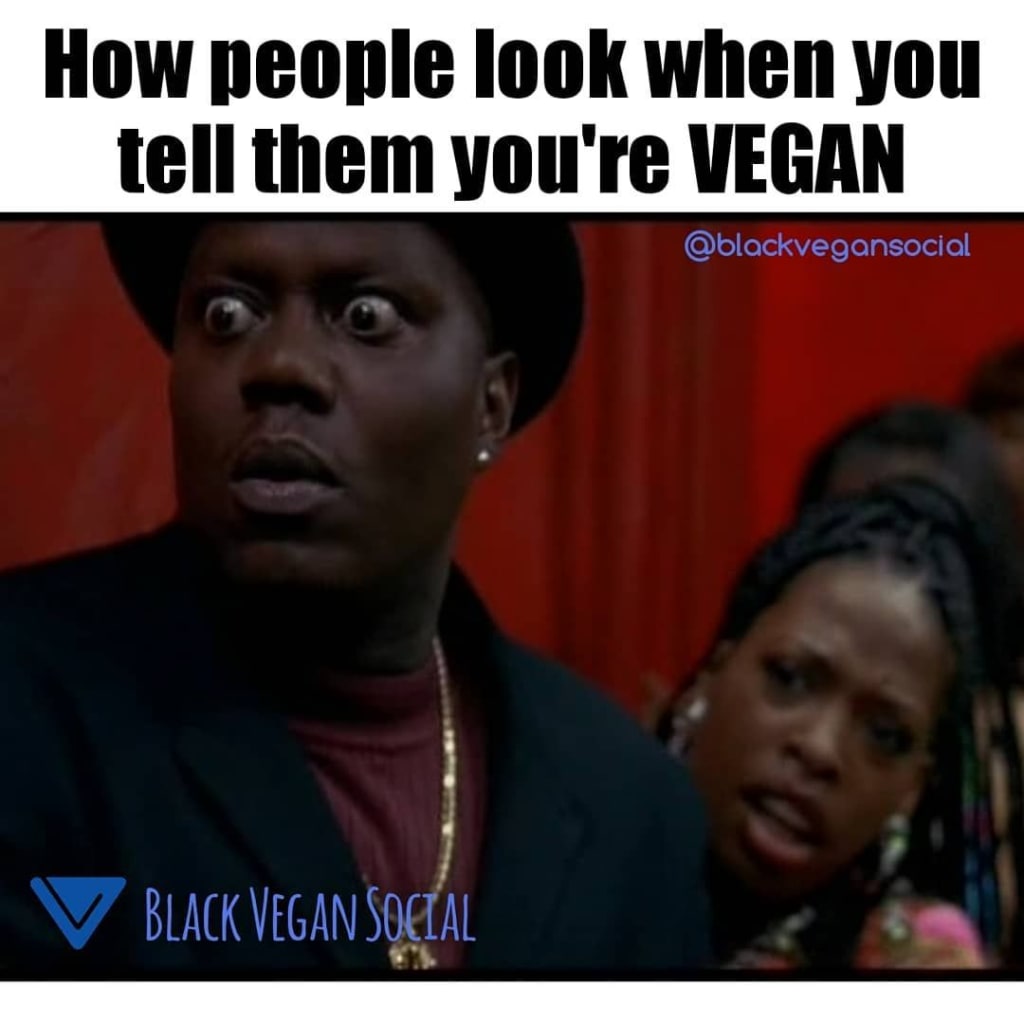Black people don't eat trees.
The Story of how one Black girl just wanted to eat trees

As many African-Americans who have had the pleasure of growing up in the inner-city a.k.a "The hood" a.k.a. "The ghetto" a.k.a "poor people paradise" whatever you want to call it knows the structure of our eating habits. Depending on whatever class you were in pretty much had a history of food that pertained to lots of soul food, corner restaurants, and/or ya mama or grandma everyday go-to's. Majority of those meals usually consists of a substantial amount of protein from animals including beef( if ya family had the money) or Chicken ( If ya had the money to buy a meat you can afford to feed to 4 kids and they broke crackhead uncle that stay with you because he can't keep a job because he always stealing), a quick fix start (something that has "roni" in the name and came from a box), and if we lucky the infamous canned vegetable(glory brand usually). I'm sure I wasn't the only one that had chicken at least 5 different ways in the same week( sometimes in the same day). This has become an ongoing tradition since slavery times when the meals we enjoy in the hood even just to survive were actually meals of survival alone because they were just the scrapes and what was seen as undeserving to us after slaves masters completed their meals. Our food traditions date as far as the 1600's when the slaves would be given the leftovers of the foods that the masters saw as trash after taken what they saw as the finer foods. The adaptation of "making something out of nothing" was also put into place as a little love and flavor to those turkey tails or pig feet was when soul food was born. It really showcased how a little love could make anything delicious. This contributed to many great recipes that were created and passed down from generation to generation however, there was more than grandma's famous black eyed peas passed down. We continued to chow down on the soul food of our many family members and ancestors and there were many health issues and illness's developed and passed down as well. The lack of fresh fruits and vegetables as well as the high fat, sugar, sodium and overall calories conceived many of the health issues and dis-eases that many African-Americans faced generation after generation and therefore got me wondering as a kid how can this occur. Growing up, I was fascinated with food and cooking and developed a great passion for it from several sources starting in my parents kitchen to the chefs I frequently watched on food network. Any new item I saw on TV Emeril Lagasse or Bobby Flay was making I wanted to try. This passion grew and it lead me into a great career as a chef in the Chicago food scene. I had the opportunity of working in the many of the greatest kitchens and was exposed to a variety of cuisines and food traditions that was opposite of what I was accustomed to eating growing up. Many ethnic foods such as Asian and Caribbean dishes had an abundance of rich recipes that were flavorful and highly historical in the traditions of the overall culture of the region it originated from which was an exciting moment for my taste buds and I. The great thing as well was that many of these food were either vegetarian or 100% plant-based ( Not intentional either). As an adult, after years of indulging on fried chicken and the Italian beefs drenched in cheese and peppers, I set intentions on becoming a vegan in an effort to heal my body and end the cycle of the dis-eases I saw so many of my family members suffer and perish from. I didn't want to suffer the way many of my loved ones did and I was blessed enough to have knowledge of the plant-based options due to the exposure of so many food options. As many people know from the beginning portion of this story, eating fruits and vegetables are not a thing black people do let alone have it as the bulk of their overall food intake, So when I announced to my family that I decided to adapt a plant-based lifestyle, They looked at me like I had confessed that I was a serial killer! The eating habits we were conditioned to had paralyzed the thought that eating foods that were not from an animal was just hard to stomach. "All you eat is just lettuce"?, "You don't like no meat", "You still like cheese"? These questions were constantly thrown at me along with the "I'm low key disgusted and don't realize it" face on a daily bases. I even was told I was crazy for deciding to let the chicken live another day and save the milk for the newborn calf that it's originally for because I care about my body and I wanted to do better( Not to mention, I developed a softy spot for animals) however, growing up and living in the hood, It was something that was subconsciously judged because it wasn't understood. It wasn't intentional though because it's obviously that we had a limited amount of exposure to these food options anyway. I get it We have been eating a certain all our lives because it's what we had access therefore it was established in our DNA as something that could not be changed, We must have our Fried Chicken and Mac and cheese with the whole Aisle 10( butter, 7 cheeses, sour cream etc.) in it was just impossible to give up in fact, It's so impossible that its even harder to take serious when someone actually does it because mentally, it's an insult to black tradition! It's incredibly ironic to me that doing something that seems so great for you could be looked at as so wrong because it's outside of your personal comfort zone but again I get it. I was successful for the first 1-2 months doing it and felt better than ever and even tried convincing some of my family members to try meals I would make to see if they would actually like it. "I don't want no damn trees" or "Naw I gotta have my pok chops n neckbones" was usually the response I would get after offering them some of my couscous salad and following a crunch on some thick slab bacon( black people just liked eating bacon in the middle of the day). I must admit that going into this lifestyle was a little weird for me as a being of African descent, the thought that changing your eating habits would require you to change your entire lifestyle but then again what exactly is the problem with that! The fact that black people connects everything they do to food. The great example is our infamous backyard bbqs. The food was significant and it was a main attraction to the whole energy of the event from the spades tournaments among all the uncles, to the old school dusties or classic hip hop classics that inspired an off branch freestyle among older cousins to the babies playing "It" and/or running through the house. The idea was that an abundance of meat and sides would be the heart of it all. The tradition has been this way for as long has food itself existed as the center of all gatherings of us black folk and with a change of tradition within the black community comes confusion and disagreement due to a mere lack of knowledge of that lifestyle was even an option for colored people. The reality is that at a black BBQ it wouldn't make sense to have a a bunch of veggie burgers and zuccini on the grill with a side of gluten free sprout bread. The point is eating healthy means going outside your comfort zone and believe it or not doing that is easier said then done. There were such painful times where our ancestors struggled to survive enduring the things that they have for centuries and for most families, stepping out of that tradition is like a slap in the face to our ancestors. The ironic part is the overall moral of the story which is the traditions of our eating habits was just a simple form of survival that paved a way to have better and now that better is an option it doesn't make sense or it's just an impossible thing to do so therefore don't offer black people no trees because they are not going to eat them......To be continued
About the Creator
Enjoyed the story? Support the Creator.
Subscribe for free to receive all their stories in your feed. You could also pledge your support or give them a one-off tip, letting them know you appreciate their work.





Comments
There are no comments for this story
Be the first to respond and start the conversation.